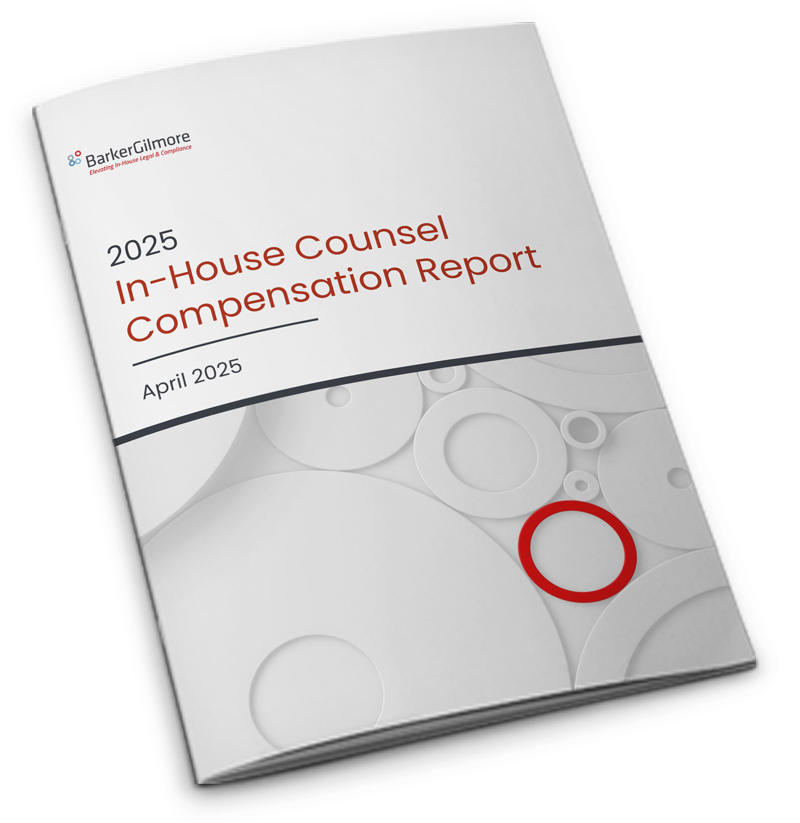A recent LinkedIn study* analyzing the hiring of C-suite executives across the United States documented the continued growth of the role of the Chief Legal Officer. A review of over 100,000 decisions to hire individuals with “chief” as part of their title highlights the acceleration of the CLO’s role. It also underscores the current and projected demand for legal executives who bring the right skills to the corporate table.
According to this LinkedIn research data, these ten titles are growing the fastest for U.S. employers.
| JOB TITLE | GROWTH AS A % OF C-SUITE HIRES |
|---|---|
| Chief Diversity & Inclusion Officer | 111% |
| Chief Underwriting Officer | 71% |
| Chief People Officer | 61% |
| Chief Legal Officer | 53% |
| Chief Accounting Officer 43% | 43% |
| Chief Growth Officer 43% | 43% |
| Chief Customer Officer 38% | 38% |
| Chief Revenue Officer 37% | 37% |
| Chief Talent Officer 36% | 36% |
| Chief Data Officer | 29% |
*Source: LinkedIn Economic Graph research, September 1, 2020, to August 31, 2021
The brave new world of the Chief Legal Officer.
The Chief Legal Officer being represented in the top half of the growth of all C-suite hires indicates that companies continue to place increasing emphasis on the CLO as a strategic advisor to the business. Today’s CLO is a key business partner to not only the C-suite, but also to the board. Prompted in part by the events of the past 18 months – COVID-19, hybrid workplaces, and diversity initiatives – the CLO is charged with an ever-increasing range of responsibilities. According to statistics from the Association of Corporate Counsel, CLOs are now spending only 28% of their time on legal matters. Adding to their business operations duties, the CLO is expected to also:
- Provide input on operational and risk areas
- Contribute to strategy development
- Oversee the data privacy function
- Be involved with the social issues of diversity and inclusion
What companies search for in a CLO candidate in today’s dynamic environment.
As companies engage in the hiring process, it is essential to gain the consensus of key stakeholders regarding search parameters before assessing potential candidates. Since Chief Legal Officers are spending so much more of their time on business issues rather than legal issues, it is clear that legal expertise is the standard and business knowledge and a business mindset are what set apart one candidate from another. A recent report by BarkerGilmore and Chief Executive Group found that CEOs want their CLOs to step up and add value at every possible turn. In fact, 70% of CEOs described their ideal CLO as someone who acts as a strategic business partner and serves as an integral and contributing member of the executive leadership team. More specifically, today’s CEOs are looking for a Chief Legal Officer who has the ability and conviction to:
- Provide strategic advice on the business
- Make high-level decisions
- Serve as an ally to move the business forward
- Be the company’s standard bearer and uphold the company’s culture and reputation
How a candidate can distinguish themselves from other candidates.
When a candidate engages in an interview process, showcasing business intelligence is essential. Specifically, researching the company beforehand allows for insightful questions and commentary on the particular business and industry. A candidate should also give specific examples of how they applied their business acumen in previous positions. One of BarkerGilmore’s team of Strategic Advisors and Coaches recently provided this perspective for candidates:
“A candidate should emphasize their intent to “learn the business” and become knowledgeable about the new company, its products, services, and support operations, and how it all flows into the business and financial models. They should also make it clear they will study the industry within which the company competes and what forces, factors, and risks are in play. Communicating this micro/macro approach will reflect a candidate’s ability to make meaningful contributions and decisions at the C-suite table.”
Strategic Advisor & Executive Coach A.B. Cruz III
To further underscore their ability to be a strategic, business-oriented Chief Legal Officer, a candidate needs to present themselves as a forward-thinking leader who proactively identifies significant opportunities for business growth.
What’s next for the CLO?
The LinkedIn study clearly defines the growing importance of the CLO role in the C-suite. The position has morphed from serving as an overseer of regulatory compliance and a reviewer of documents to a strategic business advisor, resulting in a newfound respect for the CLO as a business leader. In fact, many of the more routine legal functions are now automated as the CLO transforms from solely a legal leader into a business leader with legal acumen. Given this shift, many even consider the CLO to be swiftly traversing the necessary steps on the corporate path to CEO.
Bob Barker is a co-founder, Managing Partner, and Chair of the Industrial Practice at BarkerGilmore.
Connect with a legal recruiting advisor
* indicates required fields




